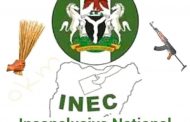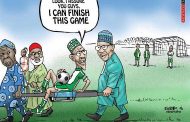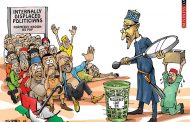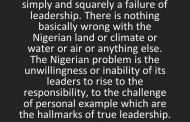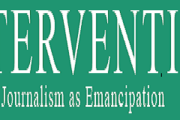Above and below too is a short clip of Chief Audu Ogbeh unfolding in a patriotic blitzkrieg. He is isolating and blaming predatory, buccaneering, speculative capitalism in Nigeria. That is g... Read more
There is no way the Governor Samuel Ortom administration in Benue State would not interpret this as an attack on it. But Intervention has nothing against ‘the defender of the Benue Valley’.... Read more
By Adagbo Onoja* In what sense might we input any connection between the strike action of one trade union – the Academic Staff Union of Universities, (ASUU) – to the geopolitical... Read more
There is a sense in which this book can be understood as an Early Warning even as probably the clumsiest Cold War grammar that Early Warning is. The temptation to regard the book as such wou... Read more

The Abiola canvass that never was
Nigeria is back to sorting out its indiscretions 25 years ago when the freest election up to that time was annulled few hours into declaration of the final results. It was a very interesting election in that a Muslim-Muslim ticket was acceptable and one individual was able to make himself acceptable across one of the most complicated but natural federation in the world-Nigeria. But junta politics annulled the election, provoking resistance of diverse ideological temperaments – class, ethno-regional, party and generational.
June 12 and the aftermath has been a loudly ‘silent’ factor in Nigerian politics since then, defining who comes to power at what time. On June 6th, 2018, however, President Muhammadu Buhari inaugurated a revivalism by announcing June 12th as the new date for Democracy Day as opposed to the May 29th that the holiday has been observed since 1999 and that was in addition to honouring Chief Abiola, the June 12 martyr with the highest of Nigeria’s national honours – the Grand Commander of the Federal Republic, (GCFR). Chief Abiola, it seems, is so far the only recipient of that honour without actually serving in that office.
Ordinarily, that should have been a great day in Nigeria, a healing gesture, to use Abiola’s daughter’s reckoning with it. The basis for such could be said to reside in three highlights of President Buhari’s address: the revivalism as assuaging of feelings, putting it on record that a wrong was done and that Nigerians would no longer tolerate such perversion of justice. Fortunately and unfortunately, the president’s statement is coming against the background of a deadly power game unfolding in the country and in which the battle line is drawn and combatants are being mobilised into taking positions on both sides. As it is now, only God would know when and how it will end. Being a game without referees, it can be difficult to predict the duration of each duel. It is worse when it involves a sitting president versus some well heeled attackers. In such circumstances, very few would accept to be referee because it is a terrible fate across Africa to be seen or be thought to be on the other side of power. So, duration depends on who establishes him or herself first and how quickly. Such contender is then the winner, depending though on the issues in question, the context of the fight and the power relationship between the combatants.
June 12 thus emerges as the issue over which the power game is being fought at the moment. Before June 12 surfaced, it was claims of mediocrity, nepotism, non-performance and condoning of corruption against the president. And to which the president replies by dismissing such charges as coming from the corrupt people, some of whom he said were those who staged a coup and overthrew him from power in 1985. His ideologues say it is because the corrupt know what is coming that they are against his re-election. It has been a tightly drawn battle line, with each side offering a powerful discourse of the Other. As is with such discursive practices, the real reasons are rarely clear to the masses. It is the grand claims that are put on show.
It is probably too much to expect an elected president to remain above politics in all instances. To that extent, many are in the mood to excuse President Muhammadu Buhari’s sudden and surprising entry into June 12 politics. Whether that applies to the virtually unqualified acceptance of the honouring of Chief Abiola, the unarguable martyr of the June 12, fiasco remains unclear. The mood on the ground before the sudden announcement on June 6th, 2018 would have suggested it was unlikely to be such a consensual response to any such move. On June 5th, 2018, the National Assembly (NASS) had passed a resolution asking the president to direct the security agencies “to curtail the sustained killings of Nigerians across the country and protect life and properties of Nigerians as this is the primary duty of any responsible Government”. As the National Assembly today is still the institutional expression of the popular will, its documented view to that effect serves to validify the narratives of presidential complicity in the security siege on the country. It was such a scary rating of the Executive arm by the Legislative arm of the government. The assumption was that the president had suffered such a normative knockout. But that was before the very positive reception of the president’s June 12 revivalist move, especially by the key families of those who lost their lives in the June 12 struggle. It suggests the move has been some master stroke in diluting the NASS resolution and the national mood the resolution spoke to. For almost a week, blaming the president over escalating violence in Benue, Plateau, Zamfara, Birnin Gwari and Doguwa in Kano State took the back seat. Reference has already been made to Hafsat-Costello, Chief Abiola’s daughter and a key victim of the June 12 crisis’s moving statement calling the presidential recognition for the father a healing gesture.

The late Chief MKO Abiola
Professor Wole Soyinka, the Nobelist, is, however, saying the revivalism is not the closure for June 12 but the beginning. Aside from calling for a ‘Hall of Shame’ in Nigeria, he is arguing that “There are far too many traumatised individuals walking around the streets as a result of the policies and attitudes of one of the most brutal dictators that this nation has ever known”. This is a sentence pregnant with ideological and policy implications, depending on how an interpreter understands it. It could mean a welfare policy for the many victims of a brutal dictatorship or conscripting a particular dictator into the ‘Hall of Shame’, something which could be difficult for President Buhari to accomplish, having once joined others to absolve the particular dictator Soyinka is believed to have in mind. Additionally, whatsapp messages are already circulating whether the president is also going to apologise to ex-President Shehu Shagari he overthrew in 1983 or to General Shehu Yar’Adua who also suffered a different form of annulment and subsequently died while in jail under Abacha, the unnamed dictator? It just shows how complex the country is!

General Ibrahim Badamasi Babangida, aka IBB whose government annuled Abiola’s election. He appears to have developed thick enough skin to the politics of June 12
Away from the June Twelvers, the entire revivalism politics is reconstituting Nigerians into different groups: the IBB group which annulled the election; the Abacha group in whose hands Chief Abiola died; the Obasanjo group who are seen as having failed to have honoured the late martyr; the Buhari group who are behind the revivalism; the Southern elders who have flatly rejected the revivalist move, preferring that the president goes for Restructuring instead. There could be other groups/voices that have yet to speak.
This is the basis for one or two plausible but yet unforeseen anti-theses of the move that scenario watchers are beginning to point at. One such unforeseen outcome is whether Nigeria might have seen all there is to it from a crisis such as June 12 that has a history of forcing someone somehow to step aside against his or her desire and wish. Have the dynamics worked out in such a way that there may not be a repeat of someone stepping aside for someone as the scripts unfolds? The president has granted Chief Abiola the (GCFR) award in addition to apologising to his family. The NASS has asked INEC to publish the results. What’s next after apology and publication of the results if not actualisation of June 12? And what is actualisation of June 12 if not an Ambassador Babagana Kingibe presidency, especially if the president is scared out of power. Kingibe was the Vice-Presidential candidate to the late Chief Abiola. The analysis is that military elements can do anything when scared out of power as when IBB gave the job to Chief Ernest Shonekan, a civilian, when he was scared out of office. In this case, Kingibe has the status of a natural heir apparent long before this time.
Those asserting this claim argue that the diffuse nature of this re-composition is such that no one knows what demands will follow the revivalism and from which quarters because it is like the revivalism has opened a floodgate. In an election year in which the second term ambition of the president is highly contested, what stops the politics of June 12 revivalism from assuming just any tactical move once such a move undercuts a particular enemy? And what if such a pragmatic move makes June 12 the only election on the ground for both those for and those against it, thus making Babagana Kingibe the ultimate beneficiary of June 12, like him or not?
The question of who to watch for this sort of reading of June 12 revivalist politics is still unclear. Some contacts swear that there is no room for Ambassador Kingibe in any script just as there are those insisting that “Kingibe is a heir apparent”. There is a third group that are categorical about no room for Kingibe because President Buhari is set on a second term “when he will move politics to a revolutionary plane”. If journalism is about “the hierarchy of credibility”, then it is almost impossible to dismiss any of these claims on the face value. Instructively, the ‘heir apparent’ status of Ambassador Kingibe predates this moment.
What seems reasonable to infer about the persistent mentioning of Kingibe is that, while President Buhari might only not seek second term if it were too evident he would suffer a humiliating electoral disgrace, a role might have been set aside for Kingibe that makes otherwise well located persons to list him. Otherwise, the president is in the race to, as his aides say, do a ‘revolution’. This is also what a top traditional ruler said recently that Buhari is being fought because those fighting him knew that on getting second term, he would take far reaching decisions that would miniaturise his predecessors. This power game might turn out a multi-script play!
By Adagbo ONOJA By what stretch of imagination would anyone call someone who was before the Economic and Financial Crimes Commission, (EFCC) a great man? Or, how could a governor who could n... Read more
It reminds of the interesting claim early in the 21st century that “Media power is one of the most outstanding conundrums of contemporary era public discourse in that we still cannot account... Read more
It started first in Nigeria when three former Heads of State – former President Olusegun Obasanjo, Ibrahim Babangida and Abdulsalami Abubakar met and took whatever collective position presum... Read more
The unlikeliness of President Muhammadu Buhari candidacy in 2019 is making the ability of the People’s Democratic Party, (PDP) to bounce back a matter of strategic concern among those rethin... Read more
Is Buhari Presidency End of ‘Sai Kai’ Era in Nigerian Politics? President Muhammadu Buhari’s battle with ill-health less than half way in his first term is triggering a nationalist revivalis... Read more


